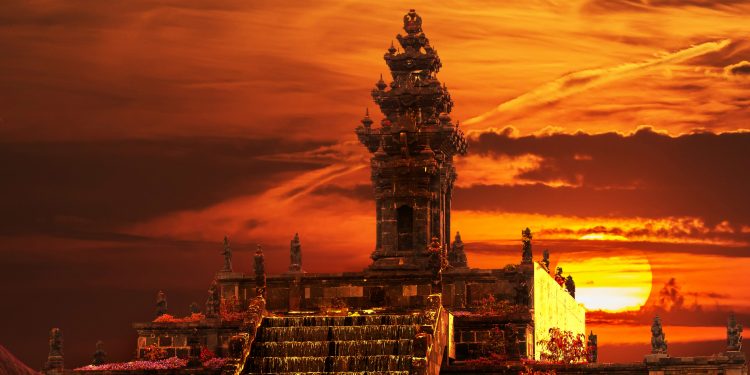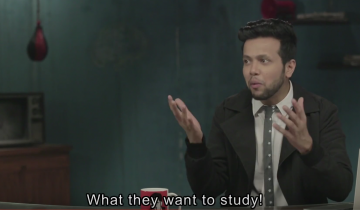The Truth Behind Padmavati

What Is The Padmavati Issue?
Since the past few weeks, we have been seeing a flurry of accusations, threats, and protests over the release of Sanjay Leela Bhansali’s fictional period drama film based on the poem Padmavat by Malik Muhammad Jayasi. Padmavati, also known as Rani Padmini, was a fiercely brave and beautiful Rajput queen during the 13th century. According to Jayasi’s poem, she is said to have been a Sri Lankan princess whom Raja Ratan Singh of Chittor won over after an adventurous quest. Legend has it that her beauty was so enamouring that Alauddin Khilji, the ruler of Delhi demanded that he see her. He went with his army to Chittor and lay siege on the fort, capturing Raja Ratan Singh. Seeing as the battle was virtually lost, Rani Padmini and 16,000 of her companions committed Jauhar (self-immolation) by burning themselves in a pyre to avoid being captured by Khilji. Over the years, several adaptations of the legend have characterised her as a Hindu queen who defends her honour against Muslim invaders and this is the version that most of the country has come to believe, as it is the one most fruitful to the cause of the so-called nationalists of today. Sanjay Leela Bhansali’s film which stars Deepika Padukone as Padmavati and Ranveer Singh as Alauddin Khilji, was rumoured to have a dream scene between Rani Padmini and Khilji. That is what sparked off the protests in the beginning, and eventually led to many organisations and parties protesting against its release citing ‘distortion of facts’ and ‘misrepresentations’ as the grounds. While the reasons for the protests might prove to be legitimate, the aggressive turn that these protests have taken has become very ugly indeed.
Why Do The People Have A Problem With It?
The row concerning Padmavati first began back in January when the film’s set was denuded in Jaipur and Bhansali was assaulted and slapped by members of the Shri Rajput Karni Sena, a social group which has taken it upon itself to prevent anything from tarnishing the Rajput name and is a self-proclaimed welfare group for Rajputs. Their work mainly consists of protesting, more on the violent front, against movies that in their opinion portray Rajputs in a wrong way. Two days after the attack a BJP leader from Madhya Pradesh, Akhilesh Khandelwal, issued a reward of Rs.10,000 for anyone who hits Sanjay Leela Bhansali with a shoe. He claimed that the filmmaker was trying to show Rajputs in a bad light in front of the public and that it was their responsibility to rein in such forces. The government did not take any action against this open act of slander. After being attacked in Jaipur, Bhansali shifted his base to Kohlapur in Maharashtra. On March 14, 40-50 unidentified men attacked the sets of the film and set fire to it, destroying costumes and equipment worth crores. The Rajput Karni Sena also burnt posters and effigies of Bhansali to protest against the film as according to them Bhansali failed to show them the film as he had promised. Even after Sanjay Leela Bhansali came out with a statement clarifying that extensive research has been done on the subject before making the film and no dream sequence existed in the movie between Padmavati and Khilji, the protests still continued. Recently, several political leaders have also entered the scene. On October 25th, former Chief Minister of Gujarat, Shankersinh Vaghela spoke out against the alleged distortion of facts by Bhansali and threatened him with ‘violent protests’ in Gujarat if he didn’t agree to screen the movie for the Rajput leaders first. His statement came at quite a convenient time as, having quit the Congress this August, Vaghela with his new front Jan Vikalp was looking for ways to enter the political scene in Gujarat before the upcoming polls. Organisations such as the Sarv Brahmin Mahasabha have also opposed the release of the film Padmavati to protect the sentiments of the general public. To add fuel to the fire, some people, including politicians have publicly announced a prize of Rs.10 crore for anyone who beheads Sanjay Leela Bhansali and Deepika Padukone. Currently, the states of Madhya Pradesh, Rajasthan, Gujarat and Uttar Pradesh are opposed to the release of the film. It would be interesting to note that all these governments are ruled by the BJP. The Central Board of Film Certification has now sent the film back to the makers as there was a technical glitch in the application for certification. Now, after being subject to so much opposition and dissent, the producers of the movie have voluntarily delayed the release of the film until after the Gujarat polls.
What Is The Truth Behind Padmavati?
What the protesters so conveniently overlooked is the controversy behind the very existence of Rani Padmini. The first mention of such a figure was in 1540, in the pages of a book of poetry by Malik Muhammad Jayasi who was a resident of Awadh. There are just two historical facts from the poem that are accurate – Khilji’s attack on Chittor and Ratan Singh’s defeat. The story of Rani Padmini has undergone several mutations and changes. From the 16th century when Rani Padmini’s body came to be associated with Rajput honour and its sanctity was to be protected at all costs, to the 19th century when, in Bengal, Padmini acquired the persona of a heroic Hindu queen committing Jauhar to escape the clutches of a lusty Muslim invader. Hidden in this interpretation was a fierce patriotic resistance to colonial dominance and the rising intolerance between Hindus and Muslims. However, this cultural memory in Rajasthan has been turned into a non-negotiable historical fact and the inversion of a character imagined by a Muslim poet to protect Hindu honour has somehow slipped one’s notice. Since the facts about Padmavati are themselves disoriented, one fails to see how another adaptation of Jayasi’s poem is considered a misinterpretation of history. The protesters should at least wait for the movie to release before making any qualms or notions about it.
Then again, one can hardly push all the blame onto the non-state actors and organisations for the ongoing controversy as our own politicians have had a very big part to play in it. BJP and Congress leaders alike have openly condemned the release of the film. If that was not enough, many of them have issued death threats to Bhansali and Deepika Padukone, completely nonchalant about the grave nature of their statements. With the upcoming polls, it does not take a genius to figure out the reason behind our politicians taking such a strong stand on the topic. While communal conflict being used as a medium to gain votes is not new in the Indian political scenario, it has almost become an indispensable tool for the Indian government now and is openly being flaunted. Yogi Adityanath, the Chief Minister of Uttar Pradesh holds Bhansali responsible for the protests. He spoke out against the filmmaker saying that if the people participating in the protests were guilty then so was the filmmaker. Day after day, freedom of speech is becoming more irrelevant in the country. Anyone who has a view different from the government and the majority is immediately being shushed. In such a guarded environment, creativity shall soon amount to nothing. Regard for people’s sentiments should be both ways. No one should be allowed to threaten another person’s life and get away with it. Even if the protesters are right, there are legal ways to stop the film’s release that do not include threatening to kill the director. The government in its part should not encourage such actions as they risk the sanctity of democracy itself. Putting the onus of law and order on the filmmakers and creative artists is not the way out of this situation; neither is repeatedly curtailing the freedom of speech. The politicians need to understand that they cannot use an artist’s work as scapegoat as a means for their own electoral mobilisation. And as for the issue about the release of the film Padmavati, Voltaire’s wise words come in mind when one thinks of the importance of freedom of speech – I may disapprove of what you say, but I will defend to death your right to say it.


